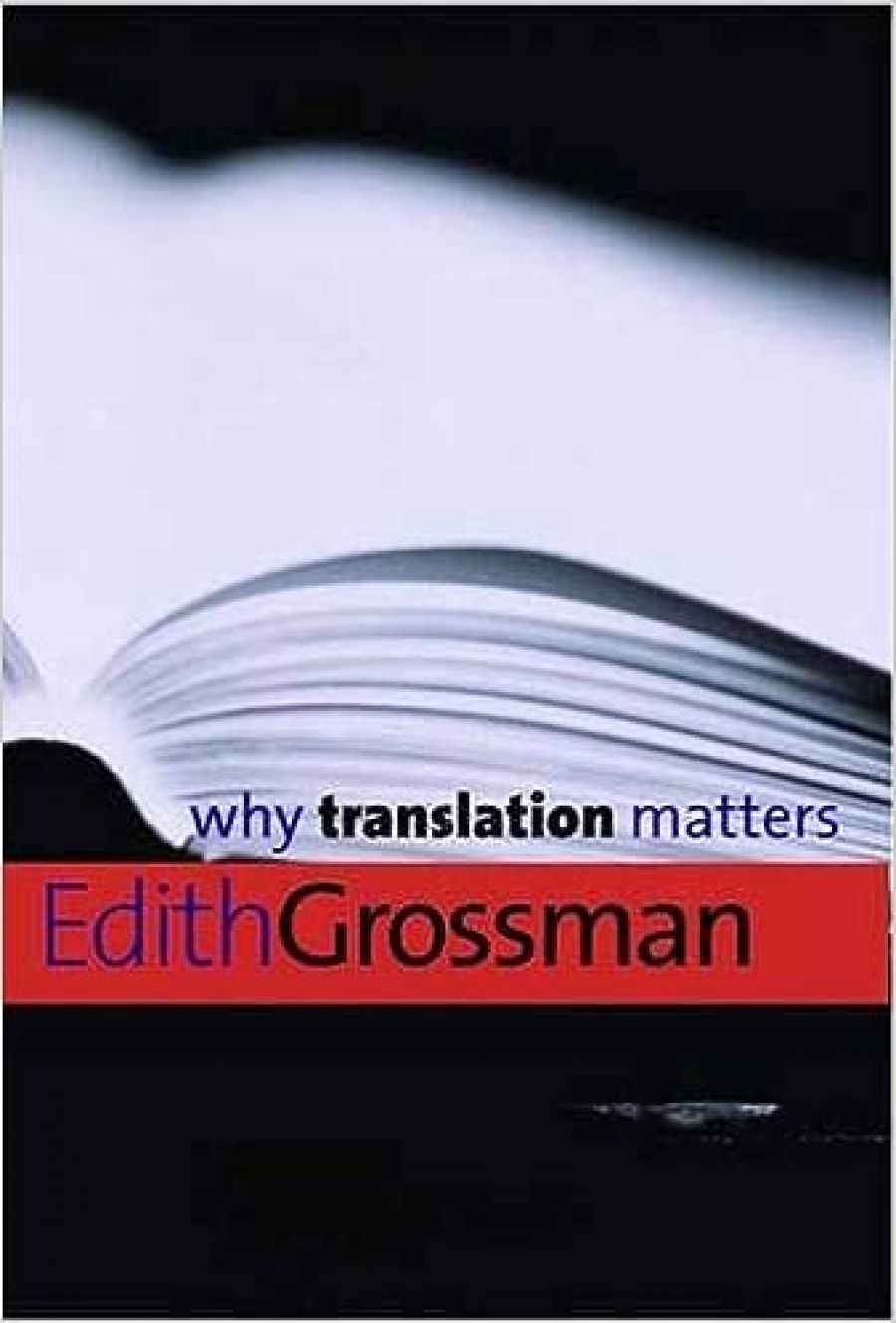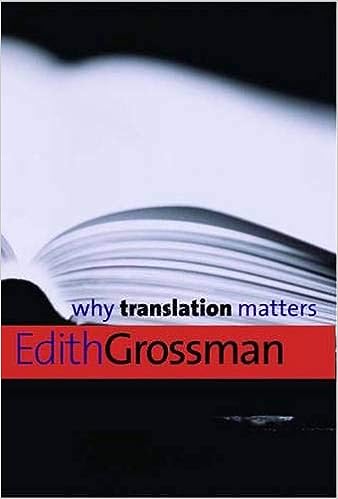
- Free Article: No
- Contents Category: Language
- Review Article: Yes
- Article Title: Bastard genre
- Online Only: No
- Custom Highlight Text:
Why does translation matter? Or does it? And who should care to know? The answers are more interesting than we might at first think. The filming of a novel, and a multinational company’s diverse advertising strategy for the one product in different countries, involve issues of translation just as much as an English version of a sonnet by Petrarch. These days, translation has outgrown its status as an illegitimate child of literature, to become a way of discussing any exchange between languages and cultures, and appropriately so, given that the word itself derives from the Latin translatio, which simply means ‘carried across’.
- Book 1 Title: Why Translation Matters
- Book 1 Biblio: Yale University Press, $39.95 hb, 160 pp
- Book 1 Cover Small (400 x 600):

Unfortunately, the illegitimate child stereotype remains, and is likely to turn us off translation for two main reasons. Firstly, it brings to mind an irate reader complaining about what is missing or has been sacrilegiously distorted in a particular version, an attitude summed up in the Italian pun, tradurre è tradire (to translate is to betray). Jorge Luis Borges understood the limits of such an argument when he told one of his translators to write not what he said but what he meant to say. Secondly, translation, in a narrow sense, easily spirals into a debate about either protecting national literatures, or a form of chastisement at how little foreign literature is translated into English and how we are the poorer as a result.
This last point is all too true. Recent figures reveal that less than three per cent of books published in the United Kingdom and the United States each year are literary translations, compared to Europe, where the average is between twenty-five and forty per cent. But really, there are more important things to get hot under the collar about.
Edith Grossman is an American translator from Spanish, notably of Cervantes, Gabriel García Márquez, and Mario Vargas Llosa; she has won numerous awards for her efforts. This present book is part of a series: Why X Matters. It is divided into four short chapters, the first three of which are based on a series of talks that Grossman gave at Yale University about general issues of literary translation and her experiences with Cervantes; the final chapter deals with poetry.
It is a rambling and often repetitive account, one not without vacuous academic writing, as in the following: ‘Translation asserts the possibility of a coherent, unified experience of literature in the world’s multiplicity of languages. At the same time, translation celebrates the differences among languages and the many varieties of human experience and perception they can express.’
Grossman aims to pitch her discussion in a sort of middle ground that often seems more of a no man’s land. Perhaps in an American context this makes some sense; after all, the United States is where impassioned crusades against bilingualism are waged, and where it is possible to see bumper stickers that say, ‘If English Was Good Enough for Jesus, It’s Good Enough for Me’. But Grossman avoids the two approaches that discussion of translation often follow, the theoretical and the practical. Of this latter, there are few juicy examples of her own experience as a translator and the choices she has had to make, a topic I find endlessly interesting. We learn only that the opening of Don Quixote, which is famously resistant to translation – ‘En un lugar de la Mancha, de cuyo nombre no quiero acordarme …’ – became in English, ‘Somewhere in La Mancha, in a place whose name I do not care to remember …’ because ‘it felt right to me’. Her conception of translation is limited to literature, and there is plenty of ranting here of the types suggested earlier.
However, the topic Grossman gets most worked up about is an interesting one: the lack of respect translators are accorded by reviewers. It is typical of the translator’s invisibility in society that he or she often goes unacknowledged in reviews, even in cases where the reviewer describes the style and language of a translated book as if discussing the original.
Equally unfortunate is the case where a book is described as ‘fluidly or seamlessly translated’ or as ‘flowing well in English’, when the reviewer has no knowledge of the original language or of whether the original text adopted a fluid style in the first place. Should we expect reviewers to know the original language of a book and to conduct an investigation of the quality of the translation? If not, how is a reviewer to talk intelligently about the quality of the translation?
These are questions that do not have easy answers, and that, like the act of translation itself, depend entirely on the specific contexts in which they are posed. But it is precisely for this reason that the debate concerning why translation matters is a vital one, and is unlikely to end soon.


Comments powered by CComment